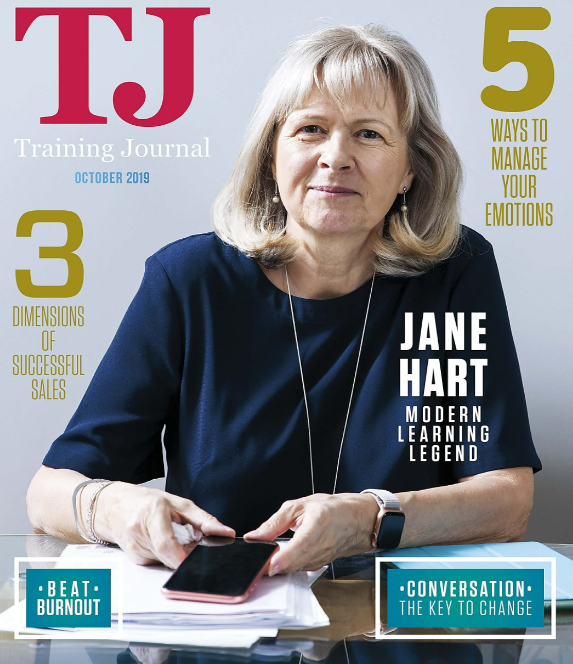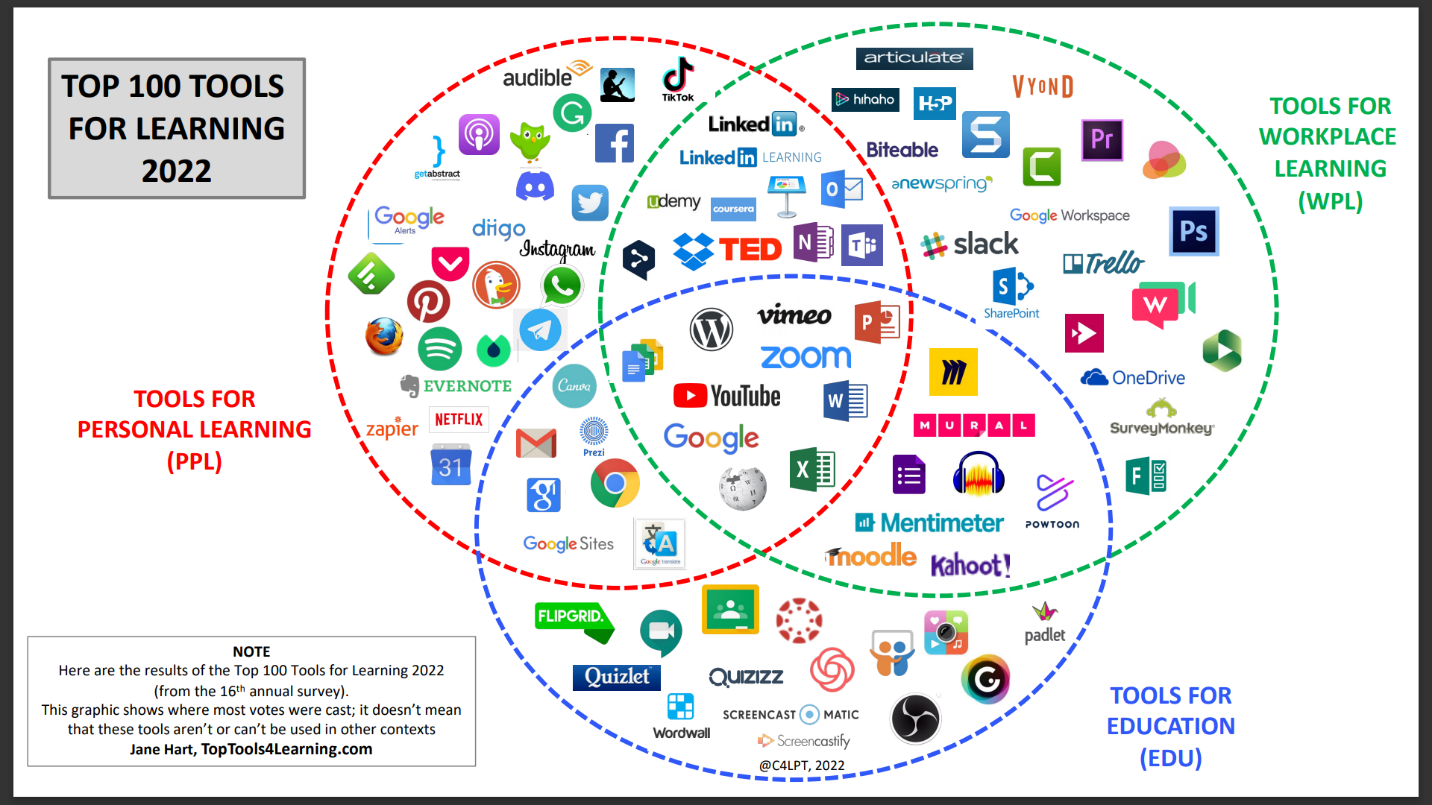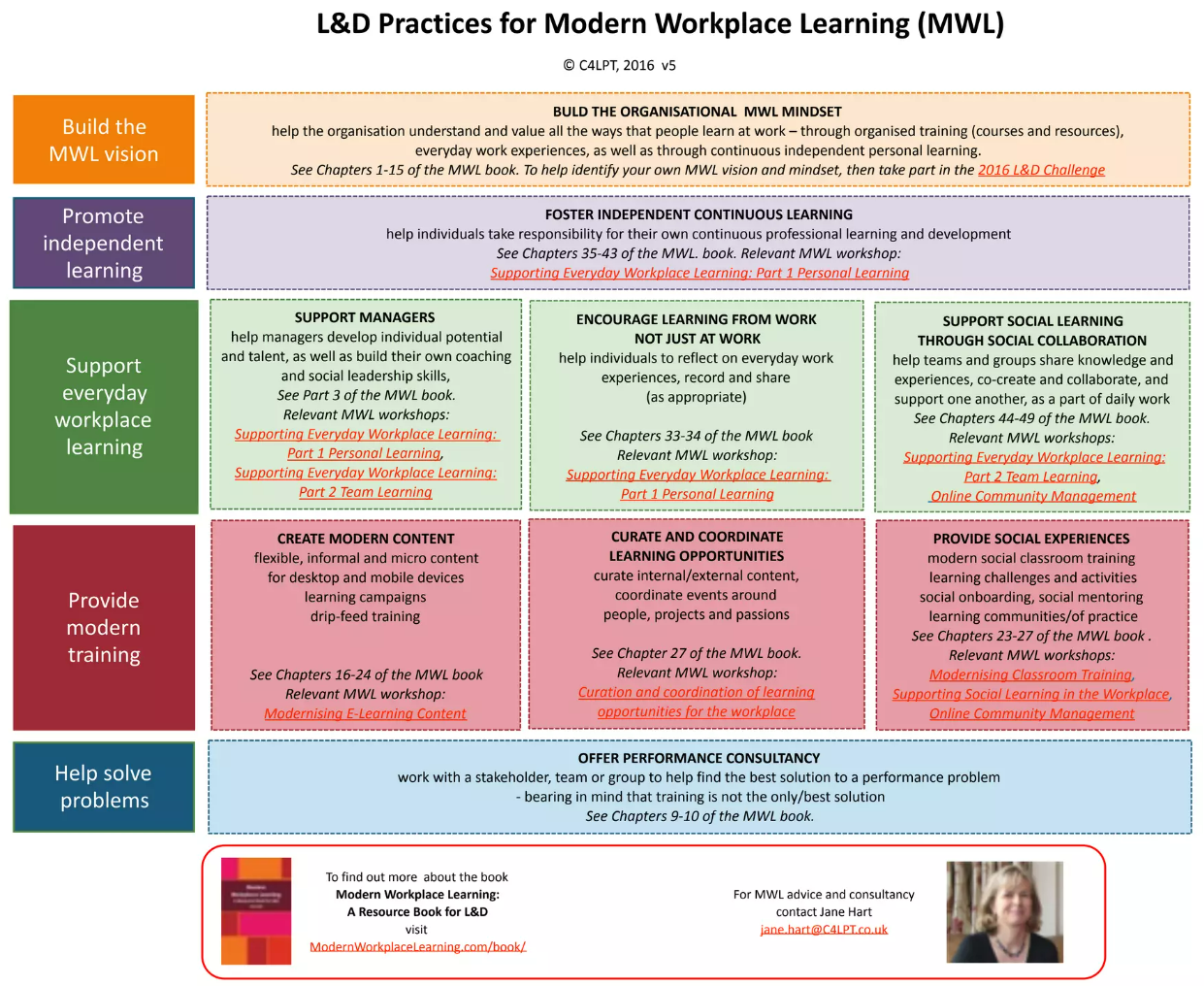Lucidea’s Lens: Knowledge Management Thought Leaders Part 28 — Jane Hart

Stan Garfield
Jane Hart is an independent advisor and consultant who has been helping organizations for over 30 years, based in Hythe, England. She currently focuses on helping to modernize the Learning & Development (L&D) function in order to support learning more broadly and in more relevant ways in the workplace. Jane is the Founder of the Centre for Learning & Performance Technologies and produces the popular annual Top Tools for Learning list. She specializes in modern workplace learning, learning and performance technologies, social media tools, knowledge sharing, and workplace collaboration
In February 2013, the UK-based Learning & Performance Institute (LPI) presented Jane with the Colin Corder Award for Outstanding Contribution to Learning. In May 2018, the US-based ATD (Association for Talent Development) presented Jane with the Distinguished Contribution to Talent Development award.
Experience
- Modern Workplace Learning: Speaker, Writer, and Adviser, 2000 – Present
- Centre for Learning & Performance Technologies: Founder, 1997 – Present
Education
- City, University of London – MSc, Information Systems & Technology, 1990
- King’s College London, U. of London – BA, German & Portuguese, 197
Profiles
- Modern Workplace Learning (MWL)
- Centre for Learning & Performance Technologies (C4LPT)
- Profiles in Knowledge
Books
Social Learning Handbook 2014: A practical guide to using social media to work and learn smarter

Modern Workplace Learning 2023: Continuous Learning and Development – What it means for individuals, their manager, and L&D

Videos
Other Content
How to build a culture for knowledge sharing at work
- Help the team see the value of sharing – and what it will bring to each one of them individually (the “What’s In it For Me”), as well as what it will bring to the group as a whole (e.g., the ability to capture team knowledge, improve communications, productivity, teamwork and ultimately business performance).
- Help the team establish sharing as part of their daily routine – if it is seen as an extra to the daily work it won’t become a habit, so taking the time daily to share will need to be become ingrained into everyday work. This might mean, at first, setting some time aside each day to establish the practice.
- Help to encourage those who feel concerned about sharing for whatever reasons they might have – This might be due to a lack of confidence or competence, or fear that it will mean loss of power. In some cases, you may need to work one-to-one with an individual to address their personal concerns.
- Help the team to “add value” to what they share – one of the easiest ways for individuals to start sharing is to provide links to resources they have come across. However, they need to be aware that they also need to provide some additional context or commentary too, so that others can decide whether it is worth their while clicking through the links.
- Help the team to “work out loud” – another key way to help a team share is to encourage them to “work out loud” and talk about their work openly, the experiences they are having, as well as their successes and failures. This is part of the collective reflection process discussed in the previous section. The advantage of doing this is that others in the team have full visibility on what is happening in the team and can easily spot others with expertise or experience in areas of work they might be about to embark on.
- Help the team to avoid “over-sharing” – this is sharing for the sake of it and can often happen if too much pressure is put on a team to prove they are “social”. In which case it may be useful to re-assure the group that: (a) they are not being forced to be social and share everything, and (b) they will not be penalized if they don’t contribute all the time.
Finally, when it comes to measuring the success of social sharing, it is all too easy to think that measuring social activity is the way to do this – that is by counting the number of posts, or comments, or likes, and so on – and then reward those who talk the most! But it will be much more important to measure how sharing has brought about improvements in job or team productivity or performance. This means focusing on the value that has been generated rather than the activity itself. Your role will be to help managers identify how they can measure these performance improvements – rather than try to manage the whole process for them!
TJ: Training Journal – October 2019 – Workplace learning expert Jane Hart discusses her life in L&D

PLAYING TO WIN
Jane’s top tips for success:
- Stand out in a crowd. Don’t be a lemming and just follow the crowd, make your own mark.
- Question the status quo. Don’t just do what’s always been done, think about how you might do things differently.
- Try new things. If you fail, learn from your mistakes and try something else; don’t give up.
- Be a role model. Don’t just talk about new stuff, show what’s possible.
- Give your best. Don’t just get by.
- Show enthusiasm. It rubs off on people and is worth an awful lot.
- Keep ahead of the game. Don’t just keep up.
- Futureproof your own career. No one else is going to do it for you, and the world is moving so fast that you will need to be prepared for your next step.
- Learn something new every day. Not just from a course, but something from your daily work or from the web.
- Share your knowledge and experiences, don’t hoard them. Knowledge isn’t power; sharing knowledge is power.
Top 100 Tools for Learning 2022 – Results of the 16th Annual Survey

L&D Practices for Modern Workplace Learning


Stan Garfield
Please enjoy Stan’s blog posts offering advice and insights drawn from many years as a KM practitioner. You may also want to download a free copy of his book, Lucidea’s Lens: Special Librarians & Information Specialists; The Five Cs of KM from Lucidea Press, and its precursor, Proven Practices for Implementing a Knowledge Management Program. And learn about Lucidea’s Presto, SydneyEnterprise, and GeniePlus software with unrivaled KM capabilities that enable successful knowledge curation and sharing.
Never miss another post. Subscribe today!
Similar Posts
Lucidea’s Lens: Knowledge Management Thought Leaders Part 79 – David Garvin
KM expert David Garvin was a proponent of organizational learning to counter unpredictability in market forces and technology advances.
Lucidea’s Lens: Knowledge Management Thought Leaders Part 78 – Carl Frappaolo
KM expert Carl Frappaolo was the creator of Delphi’s Knowledge Management Methodology (KM2)
Lucidea’s Lens: Knowledge Management Thought Leaders Part 77 – Leif Edvinsson
Leif Edvinsson, Professor Emeritus at Lund University in Sweden, specializes in Intellectual Capital Management of Enterprises, Cities, and Nations
Lucidea’s Lens: Knowledge Management Thought Leaders Part 76 – Seth Earley
Seth Earley works in cognitive computing, knowledge engineering, data management systems, taxonomy, ontology, and metadata governance strategies.

Leave a Comment
Comments are reviewed and must adhere to our comments policy.
0 Comments